Climate change: Diesel and petrol cars widespread in public sector
- Published
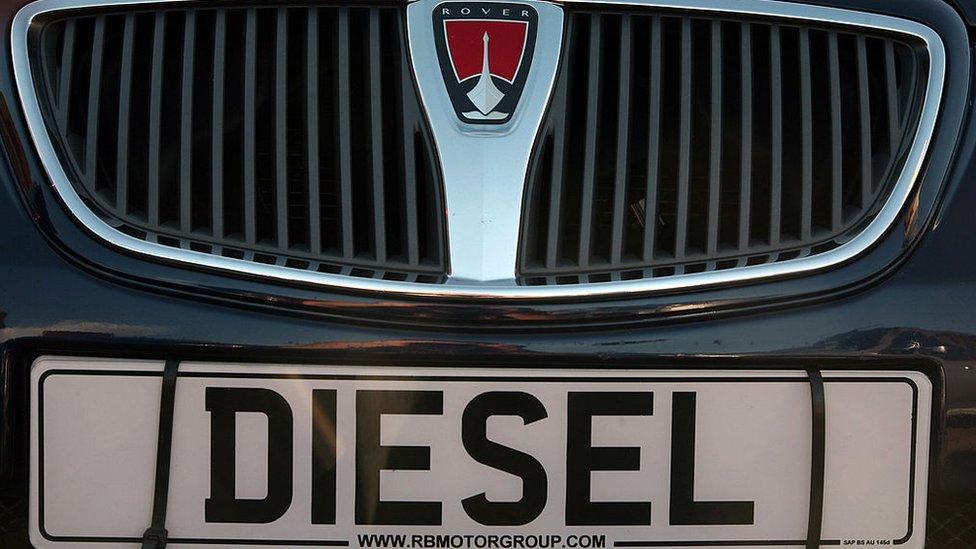
Cars running on fossil fuels account for more than 80% of the fleet in the public sector
Diesel and petrol cars are widespread in Wales' public sector, despite a push to be carbon neutral within nine years.
Some councils, health boards and other government-funded organisations are yet to install a single charging point on their land for electric vehicles.
Just 9% of owned and leased vehicles are fully electric - opposition parties said this should be a "wake-up call".
The Welsh government said it's working with local authorities to "accelerate" the move towards green vehicles.
BBC Wales asked all 44 public bodies subject to the Wellbeing of Future Generations Act, external for information on their car fleets.
Under the unique Welsh law, they are obliged to consider the environmental impact of all decisions.
A total of 4,485 cars were recorded - 3,749 use fossil fuels (84%), 417 are electric (9%), 315 hybrid (7%) and just four are hydrogen (0.01%).
Meanwhile, 513 electric vehicle charge points have been installed on land owned by the public bodies.
Of the 42 organisations that responded, eight are yet to install a single one. They are:
Arts Council of Wales
Betsi Cadwaladr health board
Hywel Dda health board
National Library of Wales
Powys health board
Public Health Wales
Sport Wales
Vale of Glamorgan council
The health boards said they had plans to install chargers in the near future.
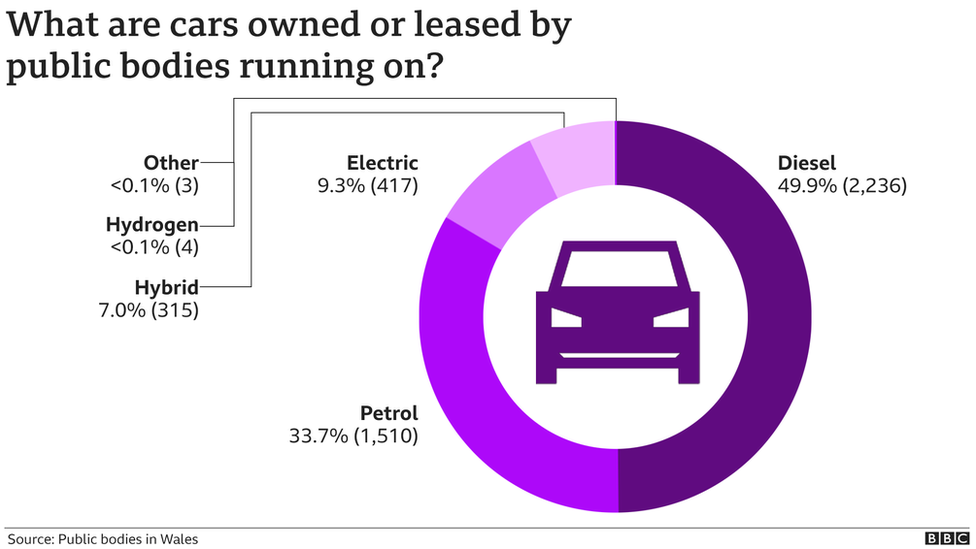
The data suggested Betsi Cadwaladr had the most low-emission vehicles - 168 electric cars and 117 hybrid - 20% of the overall reported fleet.
Pembrokeshire council said 19 of its 23 cars were either electric, hybrid or hydrogen-fuelled.
Of the cars used to transport Welsh government ministers - nine are diesel, one is hybrid and three are electric.
The Welsh government wants a carbon neutral public sector by 2030, saying at the launch of the goal in 2017 that public bodies were "uniquely placed" to influence emissions in areas such as transport.
The thinking being that if government-backed bodies made the switch and invested in infrastructure, it would make it easier and cheaper for the public to follow suit.
Alex Woodward, automotive trainer mentor at Coleg Cambria's new electric and hybrid vehicle centre in Wrexham, said the slow pace of shifting to green vehicles was a "massive frustration".
"For a pure electric vehicle the running costs are between 3-5p per mile, whereas a petrol or diesel car works out at around 15-18p per mile," he said.
Installing charging points would also encourage uptake of electric vehicles with the public, he added, calling the move "a no-brainer".
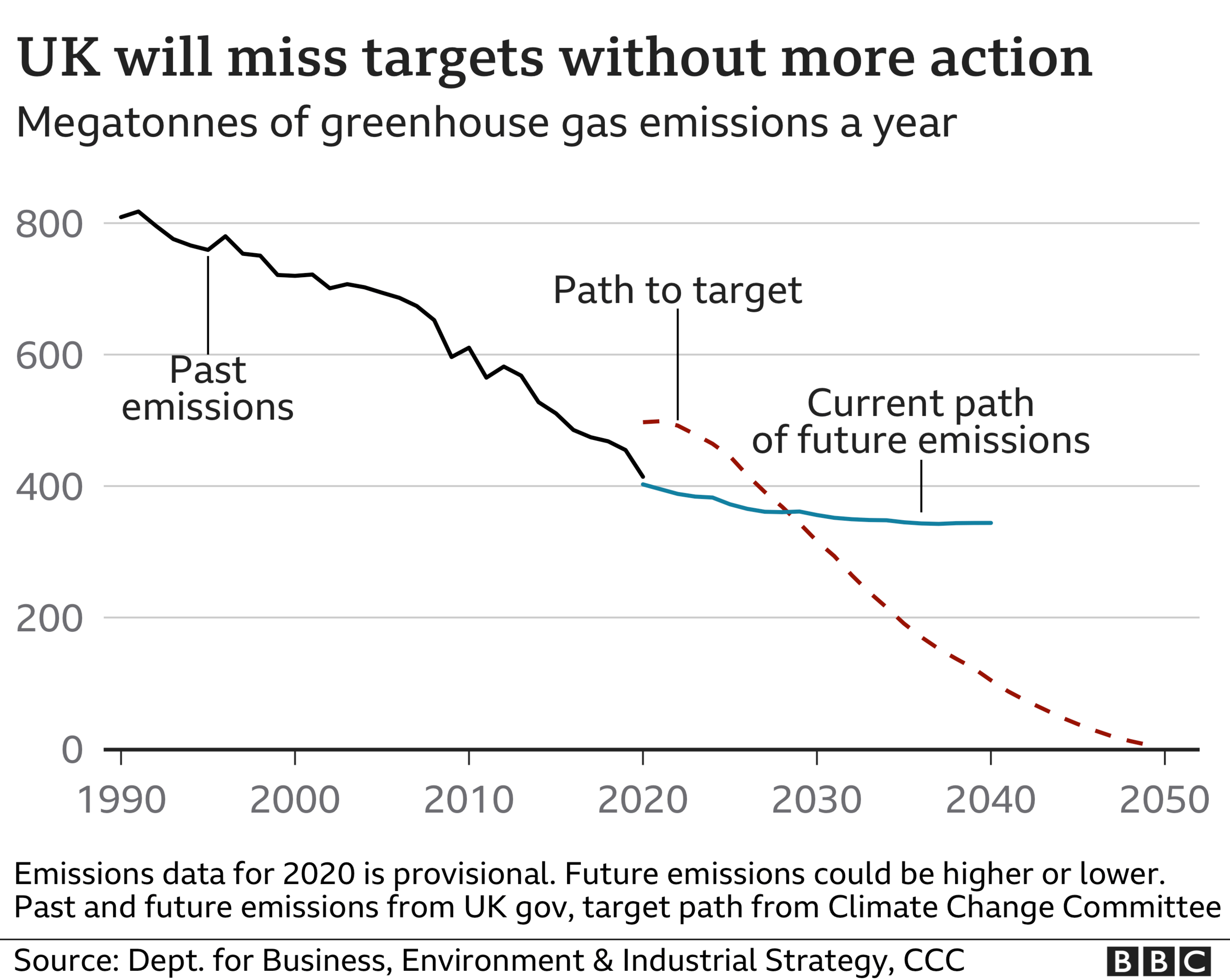
Natasha Asghar, Welsh Conservative spokeswoman on transport, said the figures were "astonishing", and added: "The Welsh government should start practising what they preach."
Plaid Cymru's climate change spokeswoman, Delyth Jewell, said her party would want to see an end to petrol and diesel cars in the public sector by 2025.
"We need to see more ambition on this and the Welsh government also has a bigger part to play - there's a lot that needs to happen, I hope these figures are a wake-up call," she added.
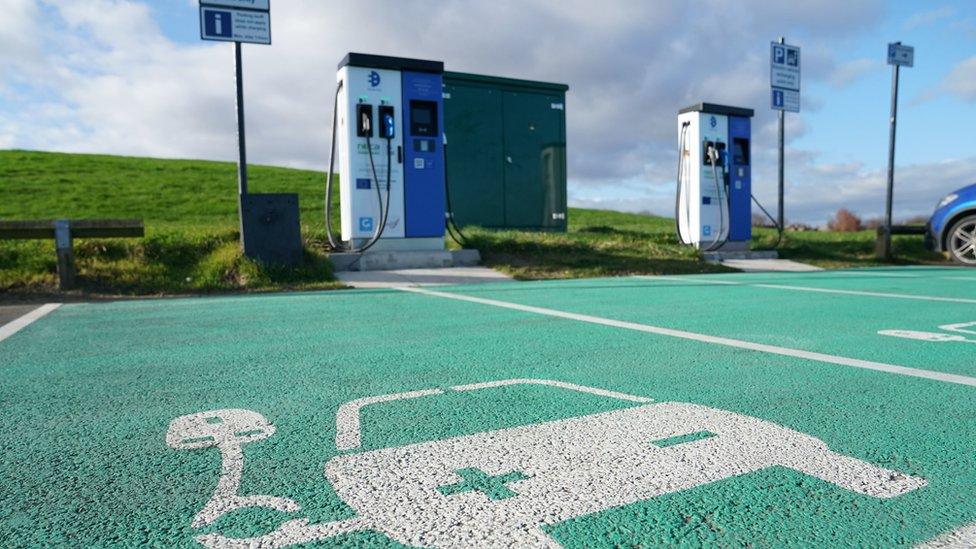
Newport council's Jason Hughes said there was a need to act with urgency as climate change had flown up the political agenda
Newport council is aiming to electrify all smaller vehicles in its 200-strong fleet by April 2022, followed by all larger vehicles by 2030, having already deployed Wales' first fully electric bin lorry.
Jason Hughes, cabinet member for sustainable development, said he was not surprised by the low take-up as electrifying a fleet was "complex work".
"As we move and progress into the future the costs will come down, but to be ahead of the game we're obviously buying at a time when these vehicles are quite expensive," he added.
"So there are big decisions to be made about making sure we get the right vehicles that are suited for the right purpose."
Speeding up the shift away from petrol and diesel cars to emission-free transport is a key aim of the upcoming COP26 climate summit in Glasgow.
Prime Minister Boris Johnson said he wanted to see progress in "coal, cars, cash and trees".
A Welsh government spokesperson said: "We have been working closely with local authorities across Wales, through the Welsh government energy service, to help them accelerate the move towards a zero emission fleet and reduce the demand for fleet cars.
"We are also taking the same approach to our fleet of vehicles."

The COP26 global climate summit in Glasgow in November is seen as crucial if climate change is to be brought under control. Almost 200 countries are being asked for their plans to cut emissions, and it could lead to major changes to our everyday lives.

- Published14 October 2021
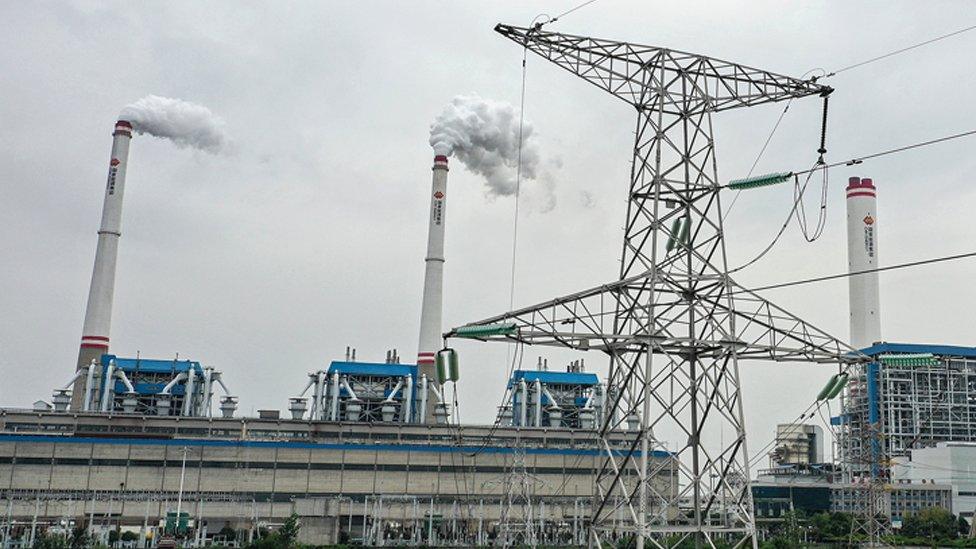
- Published8 October 2021
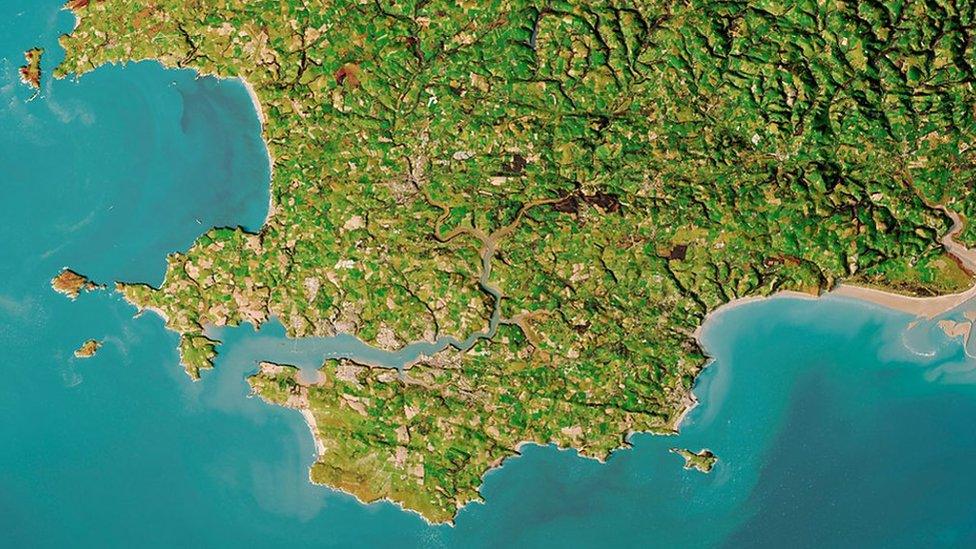
- Published18 November 2020
